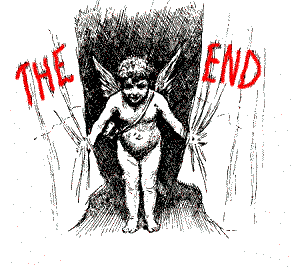July 7, 1996Asking the Deeper Question...Does Apple Deserve To Die?
PC products and companies are always in the process of dying -- sometimes quietly and sometimes in very public manner. Remember Ashton-Tate and Commodore and Kaypro? Remember Samna and Reflex and Hayes-compatible modems? Still others die like chickens dashing around with their heads cut off, bumping into things and apparently unaware of the fact that they already are, as the expression goes, dead meat. The later is certainly the case with Apple Computer, which has enjoyed a great run with the venerable Macintosh and the even more venerable Apple II, along with more recent flops with the Newton and a defunct online service cutely called eWorld. (even in defeat, Apple still knows how to do cute.) Denial is still strong in the land of Apple, but for the wider world the question is -- does Apple deserve to die? For those to whom the Mac has become an object of belief, the answer to this question is a strident -- NO -- but again the wider world may view the situation differently. Let's look at Apple's situation, staring with their hardware. Although many Macheads don't know it, at this juncture the Mac is inferior by design in many ways to the standard Wintel PC. Take video. With the Mac, your standard screen resolution is 72 lines per inch. With Windows, it is a noticeable crisper 96 lines per inch in SVGA mode. In practical terms, that means that world wide web pages generally look worse on a Mac. Then there's printing. Because it uses the older, slower method of printing via serial port, Macs print slower than the equivalent Windows machine, and often, as BugNet showed last year with the Epson Color Stylus, they deliver lower print resolution too. Software, once an arena where the Mac held its own with the Windows world, has become a sore point. Many more programs now appear in the Windows world, generally with better design and more power than their Mac equivalents (e.g., Adobe PageMill versus Microsoft FrontPage). Meanwhile virtually every Mac standby has brought out a better-selling Windows version. These days innovation -- such as the PCI bus -- is flowing from Wintel to the Mac, not the reverse. WHAT ABOUT the central pillar of the Mac fanaticism -- what Apple stands for -- you ask? OK, what does it stand for? In a word, the past. Apple represents the sort of closed proprietary system that IBM, Digital, etc. built their old mainframe universe around. One of the great social/technological advances of the late 20th century has been the move away from this model toward the open system, which the Wintel PC platform is the greatest example. And what about the Apple corporate culture that we hear extolled as creative and unusual? Well, in practical terms, you can argue that the most exceptional thing about Apple's corporate culture has been its arrogance, intellectual dishonesty, and inability to -- get it -- despite receiving more chances than Steve Howe. Microsoft -- the evil empire, in the eyes of many Macheads -- has acknowledged its debt to Apple, but Apple has claimed rights to computing concepts that were actually developed by others, notably Xerox's Palo Alto Research Center (PARC), which originated the concept of a PC with mouse and iconographic operating system. The centerpiece of Apple's tragic tableau, though, is it's inability to see the importance -- both economically and culturally -- of open systems. Apple actually sued successful Apple II cloners like the Franklin Computer, and put them out of business. Ultimately, Apple may be remembered as a monument to bad business judgment. Here is an outfit that -- rightly or wrongly -- had the computer world in its thrall for a decade, but still managed to blow it. Then there's Apple's hopeless addiction to price gouging. It is no accident that the one segment of the market where Apple remains strong -- education -- is also the only market where it charged its customers a fair price, and thus gave superior value to the customer. In every other market Apple gave inferior bang for the buck by explicit management choice! Perhaps the most telling thing of all, however, is the fact that Apple's previous CEO, -- Locomotive -- Michael Spindler, bet against the company by projecting low growth, and then won his bet, which of course cost him his job. Brilliant move! Sure Microsoft ate Apple's lunch, but life's rough on the playground. Who's up next? -- Bruce Brown
© BugNet material copyright 1994-1999 by BugNet. This historic replica of BugNet from the period 1994-1999 BF Communications Inc. Website by Running Dog
|
|||||





 THE PC industry
is in many respects a constant death watch.
THE PC industry
is in many respects a constant death watch. 
